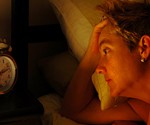How is PCP Withdrawal Treated?
As one of the only addictive hallucinogenic drugs, PCP can cause a withdrawal syndrome that should be treated under the supervision of medical professionals in a safe, controlled rehab or detox center. Call 888-602-1971(Who Answers?) now to find facilities where you can receive this type of treatment, as well as an easy transition into addiction rehab after your withdrawal symptoms begin to subside.
PCP’s Withdrawal Symptoms
According to the National Institute on Drug Abuse, “People who stop repeated use of PCP experience” withdrawal symptoms just like long-term users of other drugs of abuse do. The most commonly experienced symptoms include:
- Weight loss
- Memory problems
- Slowed reflexes and movements
- Confusion
- Anxiety
- Inability to control impulses
- Irritability
- Speech problems
- Depression
- Suicidal thoughts
- Coma
Unfortunately, PCP withdrawal can become deadly, especially if the symptoms of depression are not caught and treated safely and effectively. Because PCP is such a severe and dangerous substance of abuse, it can cause a number of issues for a person attempting to quit using it, and professional treatment is absolutely necessary in this case.
Treatment for PCP Withdrawal

Depression is a common PCP withdrawal symptom.
Many people who first enter treatment for PCP addiction are often still intoxicated. According to the Center for Substance Abuse Research, chronic abuse of PCP can be extremely dangerous and may lead to toxic psychosis and aggression among other issues.
Therefore, the first priority of PCP withdrawal treatment is to ensure that the patient is unable to hurt themselves or anyone else. Patients are usually placed in a room with very little stimulation and may be sedated with medication. Restraints may be used as a last resort, but usually, this type of care is attempted without this particular option.
Once the initial symptoms of psychosis wear off, the patient is checked for any other issues, especially as psychotic symptoms can linger in PCP addicted individuals. Depending on the state of the patient, depression and suicidal thoughts may be treated with therapy and possibly antidepressants if beneficial and necessary.
The other symptoms of withdrawal will usually be treated on a case-by-case basis, and patients will receive access to 24-hour controlled care in an environment conducive to their recovery.
Should I Seek PCP Withdrawal Treatment?
You should absolutely seek treatment for PCP withdrawal as quickly as possible. The drug itself is much more dangerous than many people realize, and without the proper treatment from the beginning, relapse is a strong possibility that can cause serious issues for the patient. Especially once one’s tolerance begins to subside, it becomes more and more dangerous for relapse to occur, as it could easily lead to overdose.
Call 888-602-1971(Who Answers?) now to find rehab programs that begin with safe, reliable PCP detox and will help you transition into intensive addiction treatment once your symptoms begin to subside.
We can also help you find out if a particular facility will accept your insurance and if a program offers certain treatment options that you may need. Call today to create real, lasting change in your life, and stop abusing PCP for good.





